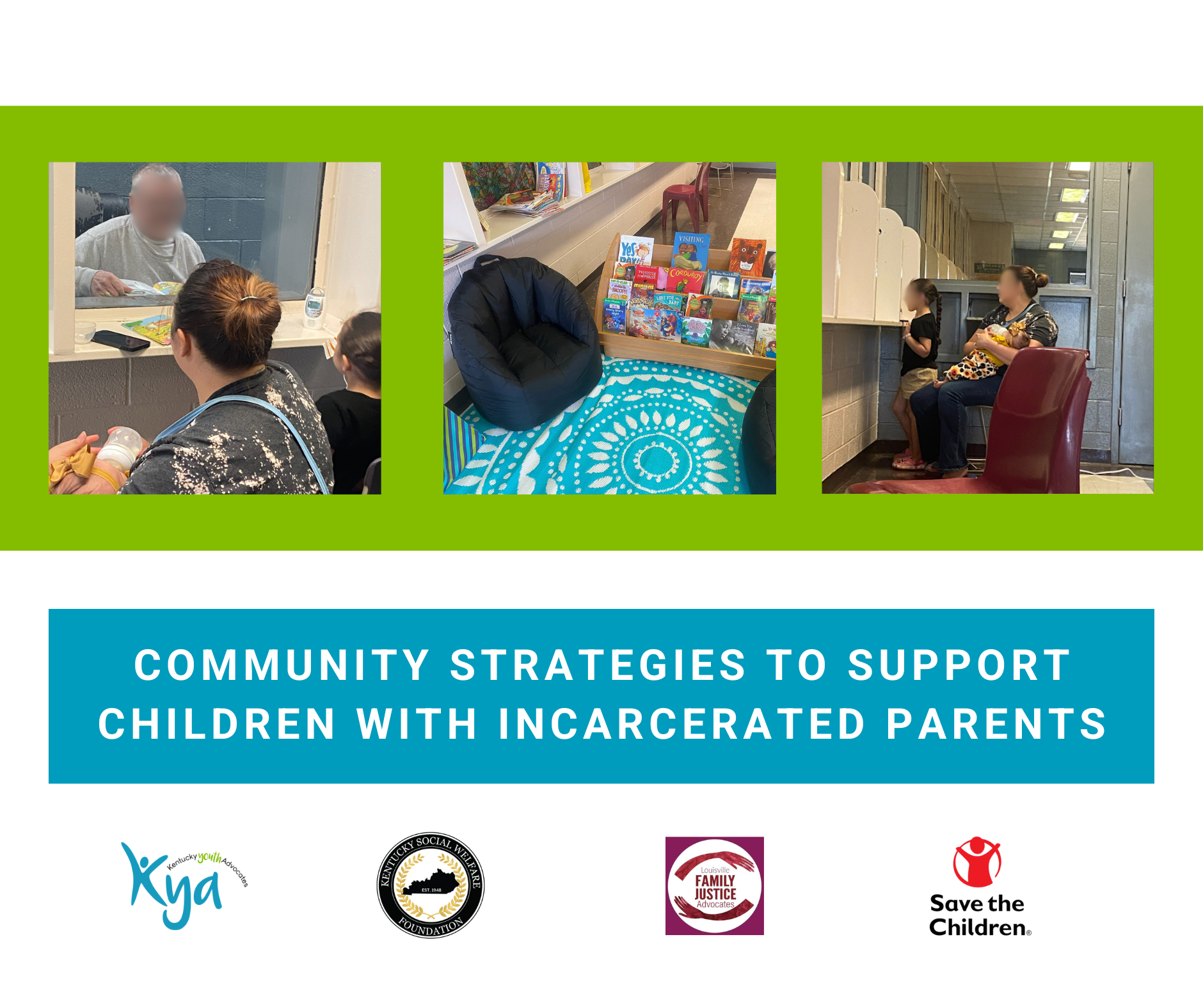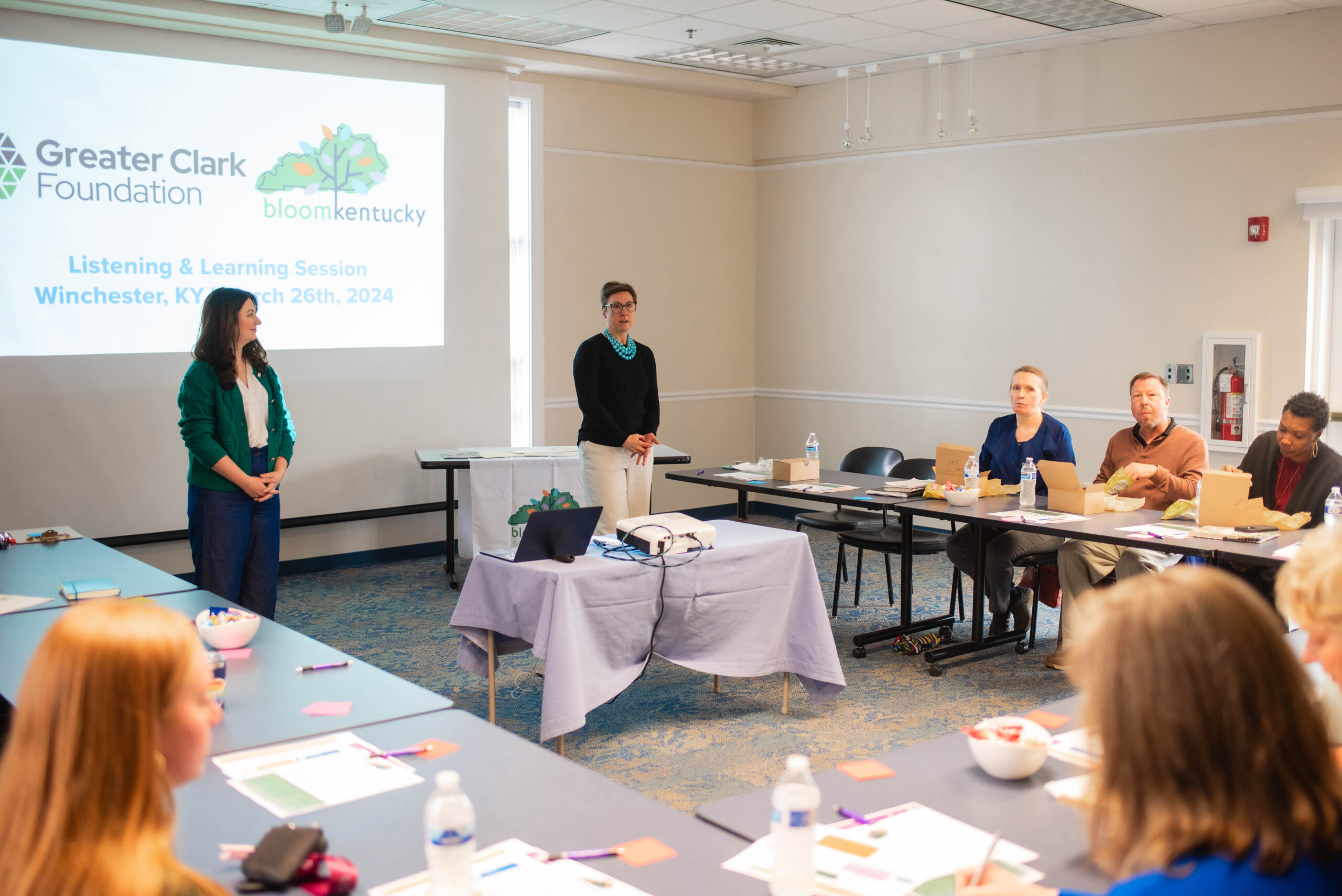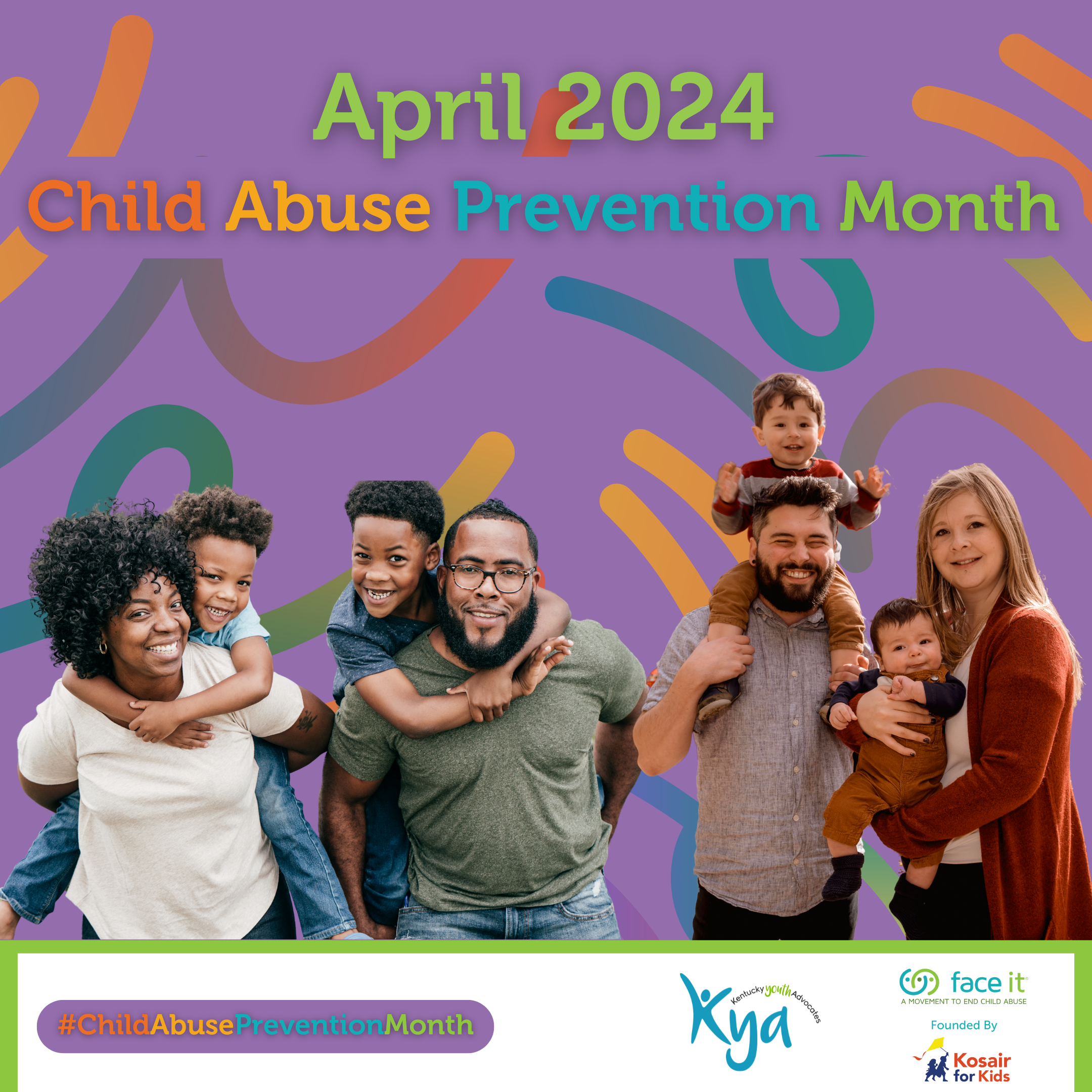By Emily Burden and Kayce Dallas, MSSW interns at Kentucky Youth Advocates
 Trauma has no boundaries. A baby who grew up with domestic violence in their home has experienced a traumatic event. A child who has been sexually abused has experienced a traumatic event. A youth who survived a severe hurricane has experienced a traumatic event. Because trauma can impact anyone, it is important that we approach individuals with a trauma-informed care lens.
Trauma has no boundaries. A baby who grew up with domestic violence in their home has experienced a traumatic event. A child who has been sexually abused has experienced a traumatic event. A youth who survived a severe hurricane has experienced a traumatic event. Because trauma can impact anyone, it is important that we approach individuals with a trauma-informed care lens.
It’s also important to note that experiencing an Adverse Childhood Experience or a traumatic event does not necessarily mean you’ve experienced trauma, and trauma impacts everyone differently.
The term “trauma-informed care” is often used in a variety of settings. But it’s important to understand the concept in the context of its application to early childhood education and other youth serving organizations, especially in the wake of a global pandemic and the most recent demands for racial justice.
Identifying children with trauma can be challenging as each child responds to traumatic events differently. Some children may struggle with communication and social and emotional regulation, while others have difficulties building relationships and engaging in play. Furthermore, the signs and symptoms of childhood trauma can be mistaken for developmental, mental health, or behavioral issues, such as attention-deficit/hyperactivity disorder, resulting in inappropriate supports that may be more harmful than helpful.
The ongoing Coronavirus pandemic has resulted in many changes, including those that have shaken daily routines for so many, especially children. Now more than ever educators and youth-serving organizations need to be focused on understanding the impact of trauma, recognizing the signs and symptoms of trauma, and integrating knowledge about trauma into policies and procedures.
Trauma-informed care importantly reminds us that not everyone comes from a safe and loving home. Children and youth who have been affected by trauma need supportive adults in their lives who understand the impact of their experiences and the challenging behaviors associated with them. Educators and youth-serving organizations who are trauma-informed can successfully work with children affected by trauma, improving their behaviors and decreasing their likelihood of suffering an array of poor health outcomes and engaging in risky behaviors as an adult.
Educators and others who work with students have felt tremendous pressure to engage children while bringing positive learning experiences to their virtual classrooms. Families have also faced struggles from the pandemic as they experience joblessness and food insecurities, along with other stressors that may spark negativity.
Practicing patience and providing flexibility for children and their families is helpful in creating a trauma-informed environment. Schools and other institutions can also integrate trauma-informed and resiliency-building practices into their policies and procedures so educators have the necessary tools and knowledge.
To navigate this new avenue of a pandemic, Non-Traditional Instruction, and working with children who have suffered traumatic experiences, we must be gentle with ourselves and others. This means parents and families should focus on things they can easily control without putting extended pressure on themselves and their children. For example, create a daily schedule for your child/family and ask for their ideas to spark creativity and ownership.
Along with giving yourself grace, it is appropriate to engage in regular self-care practices and encourage others to do so as well. During times of stress, engaging in 30 minutes of a stress-reducing activity can lead to a reduction in anxiety and a promotion in relaxation. Try taking a break, singing/dancing, calling a friend, or practicing yoga/meditation. Remember, self-care looks different for everyone.
Through our own actions as professionals and advocates, we have a powerful impact on cushioning the effects of traumatic experiences, by being a safe, loving and consistent educator and caregiver. We cannot erase the experiences children have, but we can help young children cope and process their early traumas.
 The Bounce Coalition offers trainings and other resources for child- and family-serving professionals that review the signs and impacts of trauma, trauma-informed and resilience-building practices, and ways to practice self-care. Join Kentucky Youth Advocates and the Bounce Coalition on Wednesday, November 4 at 10:00 AM ET for a workshop on self-care. Learn more and register HERE.
The Bounce Coalition offers trainings and other resources for child- and family-serving professionals that review the signs and impacts of trauma, trauma-informed and resilience-building practices, and ways to practice self-care. Join Kentucky Youth Advocates and the Bounce Coalition on Wednesday, November 4 at 10:00 AM ET for a workshop on self-care. Learn more and register HERE.
Check out the video and podcast recordings past Advocate Virtual Forum in which we discussed the trauma of the dual pandemics–COVID-19 and racial inequities–for kids and families and what schools and community organizations can do to create supportive environments.
This post is part of the blog series, Intern Insights.






Leave A Comment